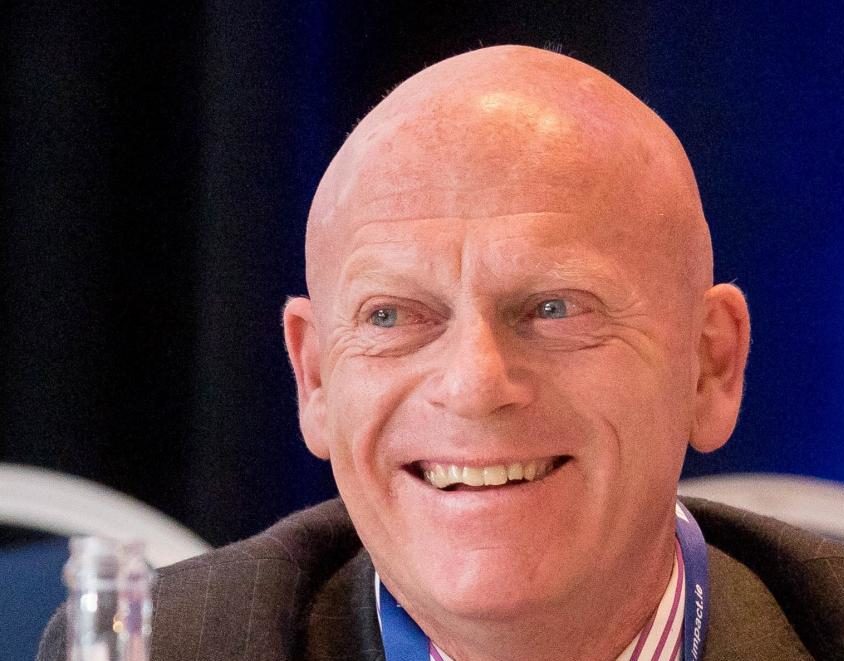Fórsa has called on the HSE to fast-track plans to recruit 7,000 community-based health staff over the next three years. The commitment was set out in the Government’s Sláintecare Strategic Action Plan 2021-23,’ which was published earlier this month.
Speaking at Fórsa’s biennial Health & Welfare Divisional Conference today (Wednesday) the union’s Head of Health, Éamonn Donnelly (pictured), welcomed the commitment. But he said health and social care professionals (HSCPs) were concerned that no timeline had been put on recruitment targets in the action plan’s list of ‘key projects and deliverables.’
In particular, he said an additional 1,600 health and social care professionals (HSCPs) were needed over the next 18 months to meet ambitious community and primary health care commitments set out in the action plan. These include the establishment of 96 ‘community healthcare networks’ to enable the integration of primary and acute hospital-based services.
Quality community health services won’t become a reality unless HSCPs are at the centre of planning and delivery because their interventions will lead the drive towards better quality of life for vulnerable patients.
The conference also heard demands that the Government implement its commitment to appoint a specialist HSCP advisor in the health department to ensure that physiotherapy, occupational therapy, speech and language therapy, social work, social care and other professional services were placed at the centre of health planning.
Mr Donnelly said: “Long waiting times for therapy services mean long-term damage to health, particularly for children. The queues for these vital services like speech therapy and physio have already lengthened because HSCPs and other staff were diverted to essential Covid-related services for the best part of a year. More staff are needed, both to catch up and to populate the community-based services needed to deliver on the commitments in Sláintecare.”
Mr Donnelly said Fórsa also welcomed the planned introduction of 96 community healthcare networks. “We are already in talks about the creation of 48 enhanced community care networks. We expect to reach an agreement, through negotiation, that will see these developed as community health networks. Once implemented, they will be proof of a political will to move to a community-led health service, with less pressure on overburdened acute hospitals. But we need to see movement on this and other initiatives so that patients can be offered the right care in the right place at the right time, and with a minimum of complexity.
An additional 1,600 health and social care professionals are needed over the next 18 months to meet ambitious community and primary health care commitments set out in the action plan.
“Quality community health services won’t become a reality unless HSCPs are at the centre of planning and delivery because their interventions will lead the drive towards better quality of life for vulnerable patients. The appointment of a specialist HSCP advisor in the health department would be one important step in that direction – and I see no reason for more delay,” he said.
Fórsa says the introduction of community networks shouldn’t resemble previous health reforms, which were characterised by disruptive changes to structures with little tangible benefit to patients or communities.
“We’ve seen many of these so-called reform programmes over the past two decades, and it’s a tradition we need to break with. The introduction of the community health networks is key to Sláintecare’s ambition to boost primary care and bring services closer to patients and their communities. It needs to be backed up with the necessary staffing resources – including the timely recruitment of 1,600 additional HSCPs – and a commitment to the integration of hospital and community health services with easier access to services for public patients,” he said.
***
It’s never been more important – or easier – to get the protections and benefits of union membership. Join Fórsa HERE or contact us HERE.
Representing over 30,000 health workers including health and social care professionals, clerical, administrative, management and technical staff.
Fórsa considers it one of the many strengths of the union that our members are central to the delivery the full array of health and welfare services in Ireland. To find out more about the range of grades represented, and where they operate within those services, visit our map “At the heart of Health and Welfare.”

